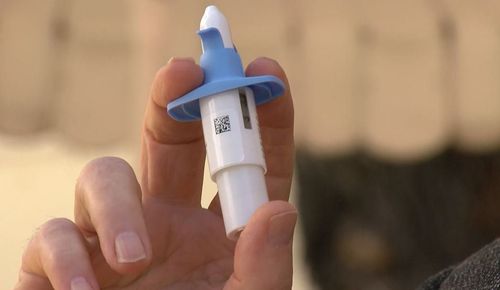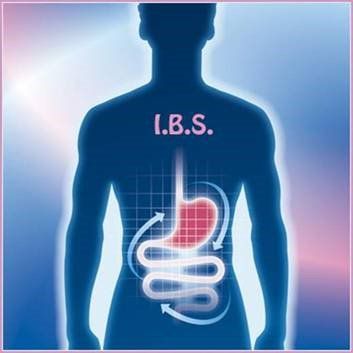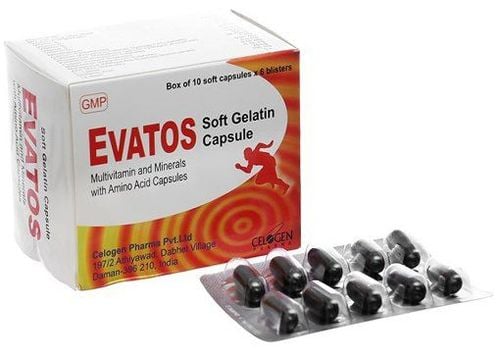This is an automatically translated article.
Desipramine is used to treat depression. This medication can improve your mood, sleep, appetite, energy levels, and may help restore your interest in everyday life. Desipramine belongs to a class of drugs known as tricyclic antidepressants. It works by restoring the balance of a natural substance in the brain called norepinephrine.1. Indications and contraindications of Desipramine Drug Desipramine is indicated in the following cases:
Anxiety Panic Disorder Binge Eating Depression Depression Post-brain trauma Nerve pain after herpes Muscle weakness related to sleeping sickness Desipramine is contraindicated in the following cases:
Overactive thyroid gland Schizophrenia Manic depression Suicidal thoughts Alcoholism Serotonin syndrome, a disorder with high serotonin levels Constriction threshold low-angle glaucoma Heart attack within the last 30 days Torsade de pointes, a type of heart rhythm abnormality QT interval prolongation on ECG Abnormal heart rhythm ECG abnormality with QT changes at birth Stroke Decreased liver disease Renal function Prostate enlargement Convulsions Incontinent urination CYP2D6 poor metabolizer Risk of angle-closure glaucoma due to narrow anterior angle of the eye chamber. 2. How to use Desipramine Read the instructions for using Desipramine from your doctor carefully. Take Desipramine by mouth on an empty or full stomach as directed by your doctor, usually 1 to 3 times daily. The dose of Desipramine is based on your medical condition and response to treatment. Your doctor may start you on a low dose of Desipramine and gradually increase your dose. Desipramine may make you drowsy or awake. Therefore, depending on how much this medication affects you, your doctor may direct you to take the entire dose once daily in the morning or at bedtime. Do not take Desipramine more or less or take it more often than prescribed. Doing so will not help your condition improve faster, but will also increase your risk of side effects. Use Desipramine regularly to get the most benefit from it. To help you remember and avoid forgetting to take your medication, take Desipramine at that time(s) each day. Keep taking Desipramine even if you feel well. Do not suddenly stop taking Desipramine without consulting your doctor. Some of your conditions may get worse when the medicine is stopped suddenly. Your dose of Desipramine may need to be tapered down gradually. Desipramine doesn't work right away. It may take 2 to 3 weeks before you get the full benefits when Desipramine is used for depression. Inform your doctor if your condition persists or worsens after using Desipramine. Tests such as a complete blood count, electrocardiogram, and kidney function tests may be performed regularly to monitor your progress while using Desipramine or check for side effects.

Người bệnh cần tuần thủ cách sử dụng thuốc Desipramine
3. Side effects of Desipramine drug During the use of Desipramine medicine, you may experience headache, nausea, dizziness, drowsiness, nervousness, trouble sleeping, blurred vision, appetite, weight gain, constipation and dry mouth. If any of the above effects persist or worsen, tell your doctor right away.
To relieve dry mouth while using Desipramine, suck on hard candy (sugar-free) or shaved ice, chew gum (sugar-free), drink water, or use a saliva substitute.
Remember that your doctor has prescribed Desipramine because they have judged that the benefit to you outweighs the risk of side effects. Many people use Desipramine without any serious side effects.
Tell your doctor right away if you have any serious side effects of Desipramine, including:
Mental or mood changes such as confusion, hallucinations, memory problems. Chest pain Breasts often produce milk Irregular menstrual periods or pain Tinnitus Sexual problems such as decreased libido, changes in libido. Tremor, numbness/tingling of hands/legs, pain/redness/swelling of arms or legs. Difficulty urinating Easy bruising or bleeding Signs of infection such as fever, persistent sore throat. Severe stomach or abdominal pain Dark urine Yellow eyes or skin. Get medical help right away if you have any very serious side effects of Desipramine, including: Chest pain, slow/fast/irregular heartbeat, seizures, fainting, trouble speaking, weakness side of the body, sore/red/swollen eyes, dilated pupils, vision changes such as seeing rainbows around lights at night.
Desipramine can increase serotonin but rarely causes a very serious condition called serotonin syndrome. Your risk of serotonin syndrome is increased if you are also taking other medicines that increase serotonin, so tell your doctor about all the medicines you take. Get medical help right away if you use Desipramine and have any of the following symptoms: Heart palpitations, hallucinations, loss of coordination, severe dizziness, severe nausea or vomiting, or diarrhea , unexplained fever, muscle twitching, unusual agitation or restlessness.
Desipramine can rarely cause serious nervous system disorders (neurological malignant syndrome). Get medical help right away if you notice any of these very serious side effects of Desipramine medicine, including: Muscle stiffness, high fever, increased sweating, fast heartbeat, mental changes or sudden mood, sign of kidney problems.
A very serious allergic reaction to Desipramine is very rare. However, if you notice any symptoms of a serious allergic reaction to Desipramine, tell your doctor right away. Those symptoms include: Rash, itching/swelling (especially of the face/tongue/throat), difficulty breathing, severe dizziness.
Below are Desipramine side effects by likelihood.
Common side effects of Desipramine include:
Dry mouth Drowsiness Dizziness Loss of taste Weight gain Increased hunger Headache Less common side effects of Desipramine include:
Bewilderment Abnormal sexual function Parkinson's Blurred vision Slow heart rate Irregular heartbeat Low blood pressure Inability to get an erection Hallucinations Muscle tremors Difficult or painful urination Anxiety Changes in sexual interest Common cold Constipation Difficulty sleeping Excessive sweating foul Vomiting Heat Diarrhea

Thuốc Desipramine có thể gây ra một số tác dụng phụ không mong muốn
Rare side effects of Desipramine include:
Antidiuretic hormone secretion syndrome Large brown or purple skin spots Very low granulocyte count Low neutrophil levels Low blood eosinophils Blood disorders Problems Drug-induced psychiatric problems Panic disorder Suicidal thoughts Serotonin syndrome Tinnitus A heart attack Bradycardia bradycardia Abnormal electrical signals Ventricular tachycardia Ventricular fibrillation QT interval prolongation on electrocardiogram Stroke Swollen testicles Enlarged breasts Abnormal milk production Increased skin sensitivity to sunlight Atopic dermatitis Itching Hair loss Convulsions Skin rash High blood Bilirubin Abnormal liver function Angioedema Angle-closure glaucoma secondary. Falling easily Heart palpitations Fantasy Nightmares Aggression Aggression Feelings Hostility Dilated pupils High blood pressure Decreased appetite Heart pounding Nausea Tingling sensation in the skin Irritability Inability to control Managing disagreements Anxiety This is not a complete list of the possible side effects of Desipramine. If you notice other effects of Desipramine medicine not listed above, contact your doctor.
4. Desipramine Precautions Before taking Desipramine, tell your doctor if you are allergic to this medicine; or with other tricyclic antidepressants (such as imipramine, amitriptyline) and any other allergies. Desipramine medicinal products may contain inactive ingredients that can cause allergic reactions or other problems.
Before using Desipramine, tell your doctor your medical history, especially of: Shortness of breath (such as asthma, chronic bronchitis), personal or family history of glaucoma (type) closed angle), diabetes, eating disorders (such as bulimia), heart problems (such as arrhythmias, coronary heart disease, heart attack), liver problems, kidney problems kidney disease, personal or family history of other mental/mood conditions (such as bipolar disorder, schizophrenia), seizures, overactive thyroid (hyperthyroidism), difficulty walking urination (such as an enlarged prostate), any condition that may increase the risk of seizures (including alcohol/sedation dependence, use of electroconvulsive therapy, brain injury/ diseases such as stroke), certain types of tumors (such as pheochromocytoma, neuroblastoma).

Người bệnh nên thông báo về bệnh sử của bản thân với bác sĩ khi kê thuốc Desipramine
Desipramine may cause a condition that affects the heart rate (QT prolongation). QT prolongation can rarely cause a severe (rarely fatal) fast or irregular heartbeat and other symptoms such as fainting and severe dizziness that require immediate medical attention.
The risk of QT prolongation with Desipramine may be increased if you have certain medical conditions or are taking other medicines that can prolong QT. Before using Desipramine, tell your doctor both the medicines you are taking and if you have any of the following conditions: Certain heart problems (heart failure, slow heartbeat, QT prolongation in ECG), money family history of certain heart problems (electrocardiogram QT prolongation, sudden cardiac death).
Low blood levels of magnesium or potassium may also increase the risk of QT prolongation on the electrocardiogram. This risk may be increased if you use certain types of diuretics or if you have conditions such as excessive sweating, diarrhea, or vomiting.
Older adults may be more sensitive to the side effects of Desipramine, especially QT prolongation, drowsiness, confusion, constipation or difficulty urinating. Drowsiness and confusion can increase the risk of falls.
Desipramine can make you dizzy, drowsy, or blur your vision, and alcohol and marijuana can make you more dizzy or drowsy. Do not drive, use machines, or do anything that requires alertness or clear vision while using Desipramine, until you can do so safely. Limit alcohol and absolutely do not use marijuana while being treated with Desipramine.
To reduce dizziness and lightheadedness while using Desipramine, get up slowly when getting up from a sitting or lying position.
Before surgery, tell your doctor or dentist that you are taking Desipramine.
Desipramine may make you more sensitive to the sun. Limit your time in the sun. Use sunscreen and wear protective clothing when outdoors.
If you have diabetes, Desipramine may make it harder for you to control your blood sugar. Test your blood sugar as often as directed and share the results with your doctor. Tell your doctor right away if you have symptoms such as increased thirst / increased urination. Your doctor may need to adjust your diabetes medication, exercise program, and diet.
Older adults may be more sensitive to the side effects of Desipramine, especially dizziness (prone to standing up), drowsiness, constipation, trouble urinating, mental/mood changes ( such as confusion, agitation) and cardiac effects such as QT prolongation. Dizziness, drowsiness, and confusion may increase the risk of falls in older adults. Use caution when using Desipramine in children.
Desipramine should be used only when clearly needed during pregnancy. Infants born to mothers who have taken drugs similar to Desipramine during pregnancy may have symptoms such as difficulty urinating, persistent drowsiness, tremors, and seizures. Discuss the risks and benefits of Desipramine with your doctor.
Because of untreated mental or mood problems such as depression, panic disorder can be a serious condition, do not stop taking Desipramine unless directed by your doctor. If you are planning a pregnancy, are pregnant or think you may be pregnant, discuss with your doctor right away the benefits and risks of using Desipramine during pregnancy.
Desipramine passes into breast milk and may have unwanted effects on a newborn baby. Consult your doctor before breast-feeding while taking Desipramine.
5. Desipramine Drug Interactions Drug interactions can change the way Desipramine works or increase your risk of serious side effects. Make a list of all the medications you take including prescription/nonprescription drugs and herbal products and share it with your doctor. Do not start, stop, or change the dose of any medicine while you are using Desipramine, without your doctor's approval. Some drugs that may interact with Desipramine include: Disopyramide, anticholinergics (including atropine, belladonna alkaloids, scopolamine), certain high blood pressure medications (such as clonidine, guanadrel, guanethidine), digoxin , thyroid tonic, valproic acid.
Taking an MAO inhibitor with Desipramine can cause serious drug interactions that can even be fatal. Avoid taking MAO inhibitors such as isocarboxazid, linezolid, methylene blue, phenelzine, procarbazine, rasagiline, safinamide, selegiline, moclobemide, tranylcypromine during treatment with Desipramine. Most MAO inhibitors should also not be taken for two weeks before and after treatment with Desipramine.

Thuốc Desipramine có thể xảy ra tương tác khi kết hợp với một số thuốc
The risk of serotonin syndrome with Desipramine use is increased if you are also taking other drugs that increase serotonin, including street drugs such as MDMA/"ecstasy", St. John's wort, certain antidepressants (including SNRIs such as duloxetine/venlafaxine, SSRIs such as fluoxetine/paroxetine). The risk of serotonin syndrome may be higher when you start or increase the dose of these drugs.
Certain other medicines can affect the removal of desipramine from your body, which may affect how desipramine works. Such drugs include barbiturates (such as phenobarbital), cimetidine, cisapride, haloperidol, certain heart rhythm medications (such as flecainide, propafenone), halofantrine, HIV protease inhibitors (such as fosamprenavir), phenothiazines (such as thioridazine). , pimozide, some anticonvulsants (such as phenytoin), antidepressants (such as trazodone), terbinafine.
Smoking reduces the effects of Desipramine. Tell your doctor if you smoke or if you have recently stopped smoking.
Many drugs other than desipramine can affect heart rhythm (QT prolongation in electrocardiogram), including amiodarone, dofetilide, pimozide, procainamide, quinidine, sotalol, ciprofloxacin, macrolide antibiotics (such as erythromycin), among others Others. Therefore, before using desipramine, report all medications you are taking to your doctor.
Tell your doctor if you are taking other products that cause drowsiness including alcohol, marijuana, antihistamines (such as cetirizine, diphenhydramine), sleeping or anxiety medications (such as alprazolam, diazepam, zolpidem), muscle relaxants (such as carisoprodol, cyclobenzaprine) and opioid pain relievers (such as codeine, hydrocodone).
Desipramine is very similar to imipramine. Do not take medications containing imipramine while using desipramine.
6. What to do if you overdose or forget to take Desipramine? If you or someone else has overdosed on Desipramine and has severe symptoms such as fainting or difficulty breathing, call 911 immediately. Symptoms of Desipramine overdose may include: Severe dizziness, fast or irregular heartbeat, fainting, hallucinations, seizures.
If you miss a dose of Desipramine, take it as soon as you remember. If it is almost time for your next dose, skip the missed dose. Use your next dose of Desipramine at the usual time and do not take a double dose.
7. How to Store Desipramine Store Desipramine at room temperature, away from light and moisture. Do not store Desipramine in the bathroom and keep it away from children and pets.
Do not flush Desipramine down the toilet or down the drain unless instructed to do so. Dispose of this medication appropriately when it has expired or is no longer needed.
Please dial HOTLINE for more information or register for an appointment HERE. Download MyVinmec app to make appointments faster and to manage your bookings easily.
Reference source: webmd.com












